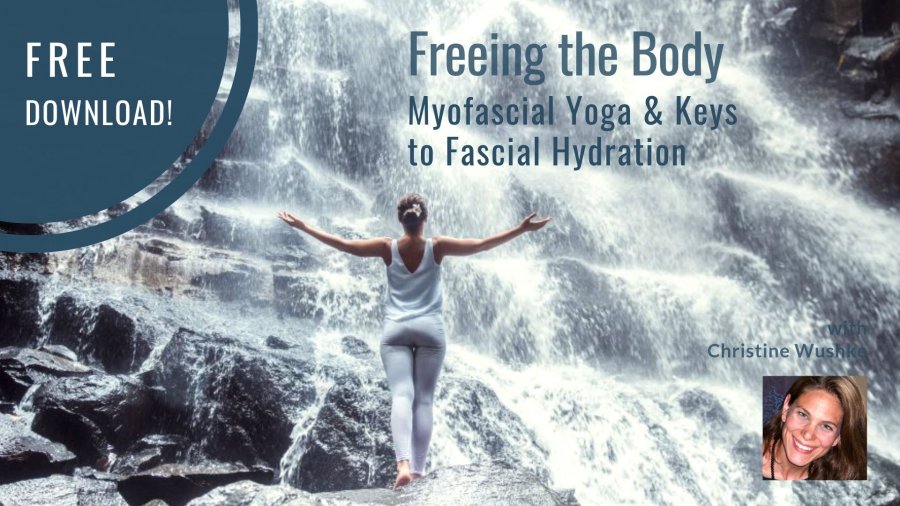Free Download! Freeing the Body: Myofascial Yoga and Keys to Fascial Hydration
Course Info
- Price:
- $0.00
Christine Wushke
 Christine Wushke has over twenty years of experience helping people find wellness and spiritual transformation. She is a certified yoga therapist and registered as a continuing education provider with Yoga Alliance. To her work with yoga she brings her background as a Certified Hakomi Practitioner...
Christine Wushke has over twenty years of experience helping people find wellness and spiritual transformation. She is a certified yoga therapist and registered as a continuing education provider with Yoga Alliance. To her work with yoga she brings her background as a Certified Hakomi Practitioner... 
The study of fascia is one of the most fascinating areas of the anatomy of the body. Fascia is the whole body connective tissue, which wraps around every structure in our body, all the way down to the level of the cells and even within each cell.
The emerging knowledge of the fascia and how all-pervading it is in the body offers a new vision of how everything in the body is interconnected, says yoga therapist and author Christine Wushke in this free download. The concept of the fascia as a whole body network completely transforms our paradigm of how the body works and how the best facilitate health and healing.
One of the key insights from fascia research relates to chronic pain, Christine notes. We are used to thinking that chronic pain is related to damage to structures in the area of pain. Instead, new fascia research suggests, pain often is caused by tension patterns in the fascia, which translate through the body. So in this framework, shoulder pain may be related to an ankle injury we had years ago, neck pain may be caused by tension patterns in the fascia of the low back, and so on.
If tension patterns in the fascia have such a pervasive impact on the body, the million dollar question is how do we release them?
Christine talks at length about her work with myofascial release and ways to integrate this work into our yoga practice.
Importantly, tension patterns don’t just come from injuries, the normal process of aging or poor lifestyle will cause the fascia to lose hydration and lose its suppleness.
In other words, keeping the fascia balanced in resilient in our daily life is essential to healthy aging and day-to-day well-being. For this, hydration of the fascia is important, and that involves a lot more than drinking water, Christine notes. She shares a series of insights into how to best encourage fascial hydration as part of our daily self care practice.
You may also enjoy Christine's course, Fascia Awareness in Yoga and Movement—Keys to Enhancing Soft Tissue Resilience and Releasing Chronic Tension Patterns.